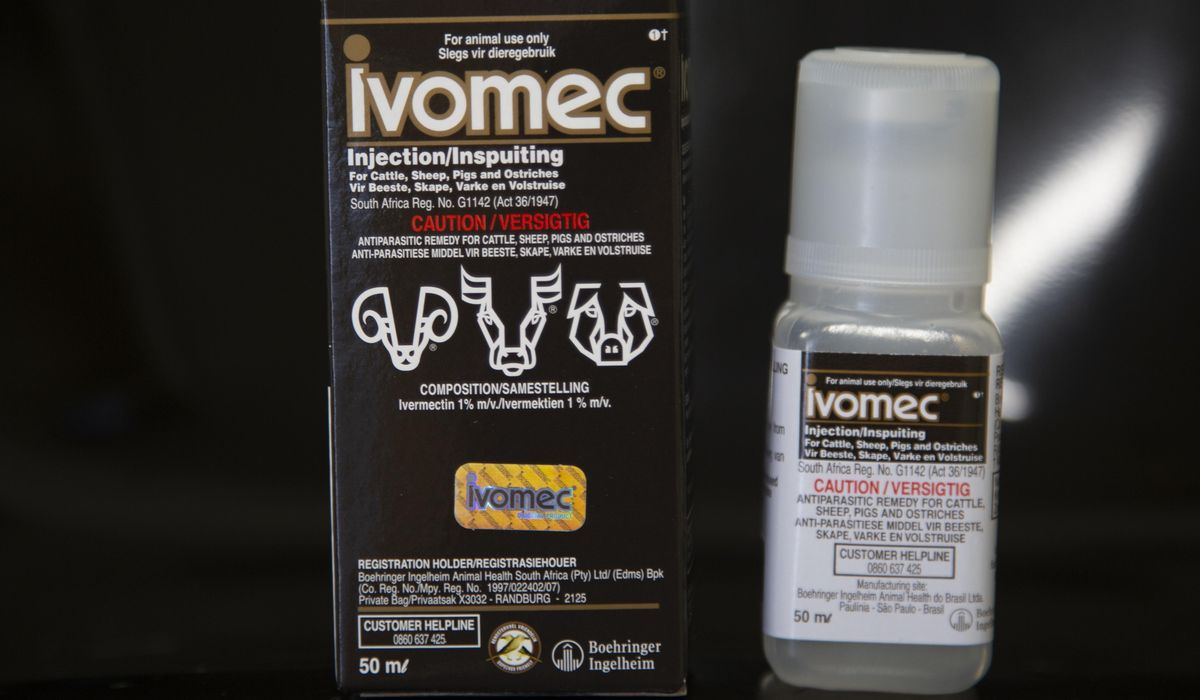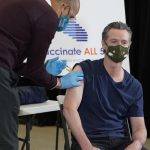
WASHINGTON (AP) – Health experts and medical groups are pushing to stamp out the growing use of a decades-old parasite drug to treat COVID-19, warning that it can cause harmful side effects and that there’s little evidence it helps.
With a fourth wave of infections, more Americans are turning to ivermectin, a cheap drug used to kill worms and other parasites in humans and animals.
Federal health officials have seen a surge in prescriptions this summer, accompanied by worrying increases in reported overdoses. The drug was even given to inmates at a jail in northwest Arkansas for COVID-19, despite federal warnings against that use. On Wednesday, podcaster Joe Rogan, who has been dismissive of the COVID-19 vaccine, announced he had tested positive for the virus and was taking the medication.
Ivermectin has been promoted by Republican lawmakers, conservative talk show hosts and some doctors, amplified via social media to millions of Americans who remain resistant to getting vaccinated. It has also been widely used in other countries, including India and Brazil.
This week, the top U.S. professional groups for doctors and pharmacists appealed for an “immediate end” to the drug’s use outside of research.
“We are urging physicians, pharmacists, and other prescribers – trusted healthcare professionals in their communities – to warn patients against the use of ivermectin outside of FDA-approved indications and guidance,” said the American Medical Association and two pharmacist groups.
Large studies are now underway in the U.S. and overseas to determine if the drug has any effect on preventing or blunting COVID-19.
The latest plea follows similar warnings from federal and state regulators who are tracking side effects and hospital admissions tied to the drug.
Louisiana and Washington issued alerts after an uptick in calls to poison control centers. Some animal feed supply stores have run out of the drug because of people buying the veterinary form to try and treat COVID-19.
“There’s just not any good evidence right now suggesting this is a good treatment for treating or preventing COVID-19,” said Randy McDonough, a pharmacist in Iowa City, Iowa
Ivermectin is approved by the Food and Drug Administration to treat infections of roundworms and other tiny parasites in humans and animals like cows, horses and dogs. Tablets are used for internal parasites while ointments are used to treat head lice and other skin infections. The generic drug works by paralyzing the worms and killing their offspring.
The FDA has tried to debunk online claims that animal-strength versions of the drug can help fight COVID-19.
“Taking large doses of this drug is dangerous and can cause serious harm,” the FDA warned in a public advisory. The drug can cause nausea, vomiting, diarrhea, seizures, delirium and even death, said the agency.
Dr. David Boulware of the University of Minnesota says the drug’s side effects are mild at two or even three times the usual human dose. But formulations for farm animals might contain 1,000 times what’s safe for humans.
“It’s pretty easy to get into toxic levels,” said Boulware, an infectious disease specialist. “All these concentrated doses that are meant for a 2,000 pound horse can certainly get people sick or hospitalized for toxicity.”
Boulware says he prescribes the drug to patients a few times a year in the U.S. and more routinely when working in countries where intestinal parasites are common. But he and other experts have been alarmed by the explosive growth in U.S. ivermectin prescribing.
By mid-August U.S. pharmacies were filling 88,000 weekly prescriptions for the medication, a 24-fold increase from pre-COVID levels, according to the Centers for Disease Control and Prevention. Meanwhile, U.S. poison control centers have seen a five-fold increase in emergency calls related to the drug, with some incidents requiring hospitalization.
The CDC citedone case of a man who drank an injectable form of ivermectin intended for cattle. He suffered hallucinations, confusion, tremors and other side effects before being hospitalized for nine days.
The World Health Organization, the National Institutes of Health and other medical experts have also recommended against using it outside of carefully controlled patient studies. An NIH panel found “insufficient evidence” for or against the drug for COVID-19, calling for more large, well-designed trials.
The experts noted that early laboratory research showed ivermectin slowed the replication of coronavirus when grown in monkey cells. But such studies are not useful for gauging real-world effectiveness in humans. And they noted other research suggesting the drug would need to be given at levels 100 times the standard dose to have antiviral effects in humans.
The NIH is studying the drug in a large trial comparing a half-dozen established drugs to see if they have some effect against COVID-19.
Experts say those interested in ivermectin should ask about enrolling in such studies.
“By participating in a clinical trial you’re not going to harm yourself and you’re going to help society generate the knowledge we need to know if this works or doesn’t work,” said Boulware.
New and improved commenting system coming soon.
Health, The New York Today




